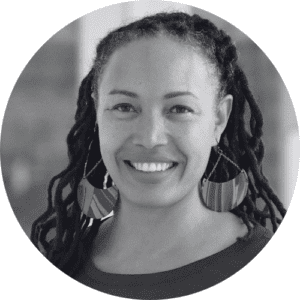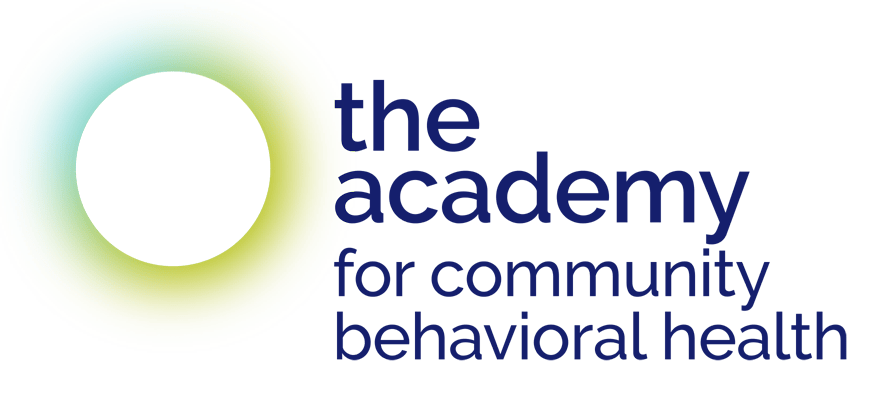Academy Innovation Resident

Anna Ortega-Williams, PhD
Academy Innovation Resident
Dr. Anna Ortega-Williams is a social worker, public scholar, researcher, educator, and organizer inspired by the healing alchemy of social action among Black youth. Dr. Ortega-Williams is the Bachelor of Social Work Program Director and an associate professor at the Silberman School of Social Work at Hunter College. She is also currently the Academy Innovation Resident with the Academy for Community Behavioral Health supporting co-design of mutual aid, trauma recovery, and land-based healing initiatives. A social worker since 2001, Dr. Ortega-Williams is excited about trauma recovery interventions that push the boundary between individual and collective healing and social change. Her research focuses on historical trauma, posttraumatic growth, land-based healing, organizing, and wellbeing.
Dr. Ortega-Williams is deeply inspired by local, national, and global social justice movements, in particular Black youth-led responses to interrupt systemic violence. Her work is informed by growing up in public housing in the Bronx, as well as her commitments to joy, healing, imagination, and hope while transforming the world. Anna holds a PhD in social work from Fordham University’s Graduate School of Social Service, Master of Social Work from Stony Brook University, and a Bachelor of Arts from Hunter College.
Academy Innovation Residency (AIR)
As the Academy’s inaugural Innovation Resident, Anna leads work intended to shift dialogues and improve community health practice. This includes:
Transforming Trauma Discourse
Anna is curating a series of public conversations with the Academy that will enlarge the way we think about trauma, growth, and healing.
Supporting Innovation in Academy Programs
Anna acts as a Senior Advisor to the Academy’s Trauma-Informed Organizational Practice pilot. She leads the development and application of co-design methods and tools for building and improving this curriculum with NYC social service providers. Anna also teaches from her work in historical trauma and posttraumatic growth.
Piloting the NYC Land-Based Healing Project
Anna was awarded a CUNY Interdisciplinary Grant to launch the NYC Land-Based Healing Project in partnership with community gardens and farms across the five boroughs and a team of scholars and practitioners. This project explores land work in NYC as a path to social action, connection to culture, and intergenerational legacies of healing in the context of historic and persistent racism. It centers on the experiences of Black youth and youth of color working in community gardens and farms, along with the elders who support them. As part of the research team, the Academy supports the implementation and spread of this pilot approach to community-centered care.
RECENT PUBLICATIONS
Ortega-Williams, A., Stephens, T., & Henderson, Z. (2024). Black intergenerational healing and well-being: Reimagining posttraumatic growth. American Psychologist, 79(8), 1171–1184. https://doi.org/10.1037/amp000130
For Black people of the African diaspora, who have survived generational oppression including enslavement, and exist in persistently hostile environments in which anti-Black racism is structural and interpersonal, an expansive view of posttraumatic growth (PTG) is required to promote personal and collective healing. Using the intergenerational healing and well-being framework, the authors examine historical and contemporary examples of personal and collective healing among Black people to reimagine pathways to PTG. Implications for helping professions when rethinking PTG in the context of systemic anti-Black racism are presented. (PsycInfo Database Record (c) 2024 APA, all rights reserved)
Ortega-Williams, A. (2024). Healing Black futures: Black youth organizing to redefine destiny. Journal of Progressive Human Services, 1-18. https://doi.org/10.1080/10428232.2023.2301164
Black youth throughout American history have resisted racism and the social injustice it produces. Strategies have historically included rebellion, advocacy, and social protest as well as the construction of mutual aid societies. Black youth have been central to the development of Black counter-institutions preserving their heritage and collective strengths. While contemporary organizing frameworks recognize the need personal and “collective-self” care to sustain social action, there is little research on the meaning of ancestral historical resistance or the cultural and spiritual mechanisms Black youth incorporate. In this article, findings from interviews with 20 Black youth organizing in New York City will be presented; highlighting what they described as discovering their calling and channeling liberation for a healed Black future. Implications for Black youth-led community organizing in the context of historical trauma and systemic violence through social action will be explored. The study is situated in literatures examining organizing among Black youth in the context of historical trauma.
